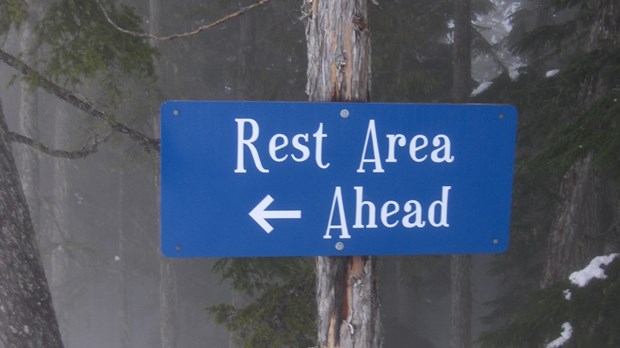
I like working efficiently.
Every time I figure out a new way to work smarter, not harder, it’s like finding a $20 bill in an old coat.
Shortcuts, life hacks and time management tools are a great blessing, allowing me to get more done in less time, with a higher degree of quality.
Efficiency is not just a matter of good work habits, it’s about biblical stewardship.
But not when I worship. Or fellowship.
Worship Is too Important to Rush
A great time of worship is like a great work of art. Or a great relationship.
Art, beauty and love are not efficient. Neither are worship, prayer or fellowship. They take too much time. They're too sloppy. They're too important to rush.
This is one of the reasons I like small churches so much.
Big churches have to be efficient in everything they do. Small churches don’t.
When you have hundreds or thousands of people attending multiples services and/or venues, efficiency is essential or the whole thing falls to pieces.
But in a small church, you can take your time. Without hundreds of people to corral, or multiple services to coordinate, small churches can relax, slow down and enjoy the presence of God and each other.
Be Efficient, Not Hurried
This is not an excuse for laziness, apathy or lack of planning.
A wise church leader knows when to use time efficiently and when to spend it generously.
There’s no excuse for late starts, extraneous announcements or long-winded sermons. Every minute wasted unnecessarily is a minute lost for the things we need to dwell on. (By the way, not every sermon needs to be under 20 minutes. Some sermons take time. But they need to be worth it.)
Efficient planning should be used to create extravagant expanses of time for the things that can’t be rushed.
- Time to pray, not just hear prayer requests.
- Time to worship, not just get through the song set.
- Time to fellowship, not just do a turn-and-shake.
- Time to disciple people, not just complete the curriculum.
- Time to relax instead of worrying about the clock.
A worship service can be conducted efficiently, but worship can't. Worship takes time. It requires whatever space is needed to ponder, reflect, celebrate and linger.
Slow Down for What Matters
We tend to rush through the things we hate, but slow down for the things we love. Our overly-efficient, time-sensitive worship services may be sending folks the wrong message, no matter how great the sermon is.
It's the same with fellowship and discipleship. You can't put a stopwatch on getting to know each other or on learning how to follow Jesus better, without diminishing their value.
We need to do the administration parts of ministry more efficiently so we can slow down for God and people. You know, the ministry parts of ministry.
Loving Jesus, loving each other and making disciples.
You can’t hurry that. And why would you want to?
(Update: Nothing in this post is meant to imply that big churches can’t or don’t worship. They can and do. Even in highly efficient weekend worship services. And most of them work very hard to provide and promote small groups so church members can have plenty of time for fellowship, worship and discipleship. The purpose of this post – as always – is to encourage small churches, not to criticize big ones. Thanks for catching that oversight in my first draft of this post, Sean!)
Copyright © 2016 by the author or Christianity Today/Leadership Journal.
Click here to read our guidelines concerning reprint permissions.
Pivot is a part of CT's
Blog Forum. Support the work of CT.
Subscribe and get one year free.
The views of the blogger do not necessarily reflect those of Christianity Today.
Join in the conversation about this post on Facebook.
- A Discipleship Strategy Small Churches Can Actually Follow, with Darrell Stetler (Ep 38)Darrell and Karl talk about the importance of discipleship in the life of the church – and as a central role in our calling as pastors.
- Why Proximity and Longevity Matter in Pastoral Ministry, with Alan Briggs (Ep 36)Karl interviews Alan Briggs, a pastor, the author of Staying is the New Going, the host of the Right Side Up Leadership podcast and StayForth.com.
- Seculosity: Ministry In The Era Of Secular Religion, with David Zahl (Ep 37)Karl Vaters interviews David Zahl, author of Seculosity: How Career, Parenting, Technology, Food, Politics, and Romance Became Our New Religion and What to Do about It.
- Should You Start a Podcast? And Positive Ministry Trends, with Aron Utecht (Ep 35)Karl Vaters interviews Aron Utecht, a pastor and the host of the Good Ideas for Churches podcast















